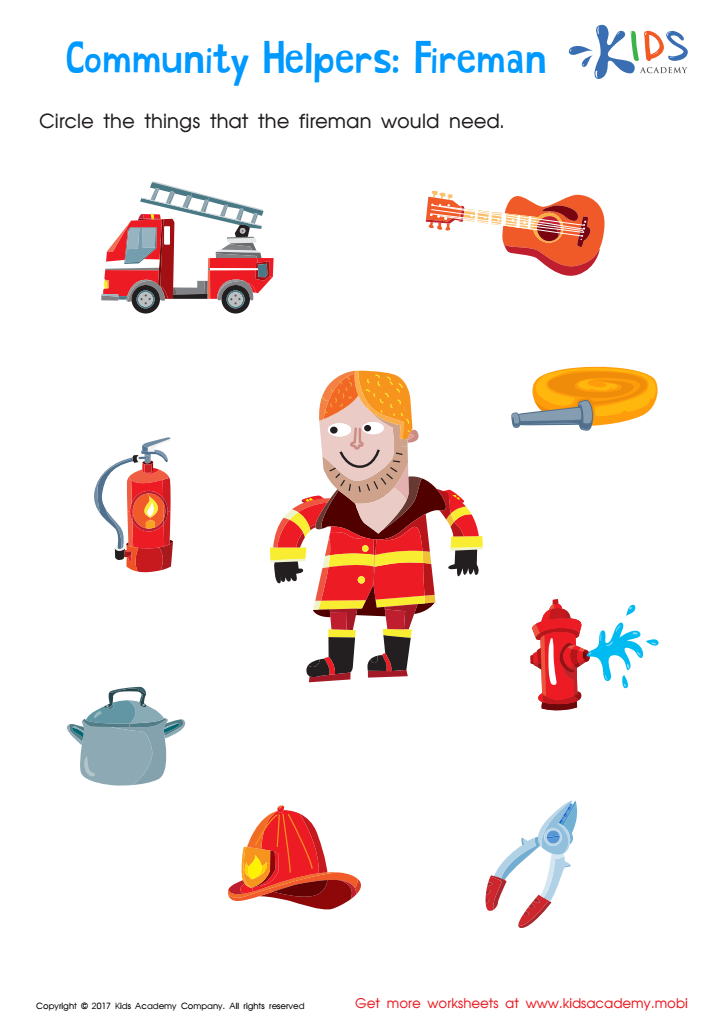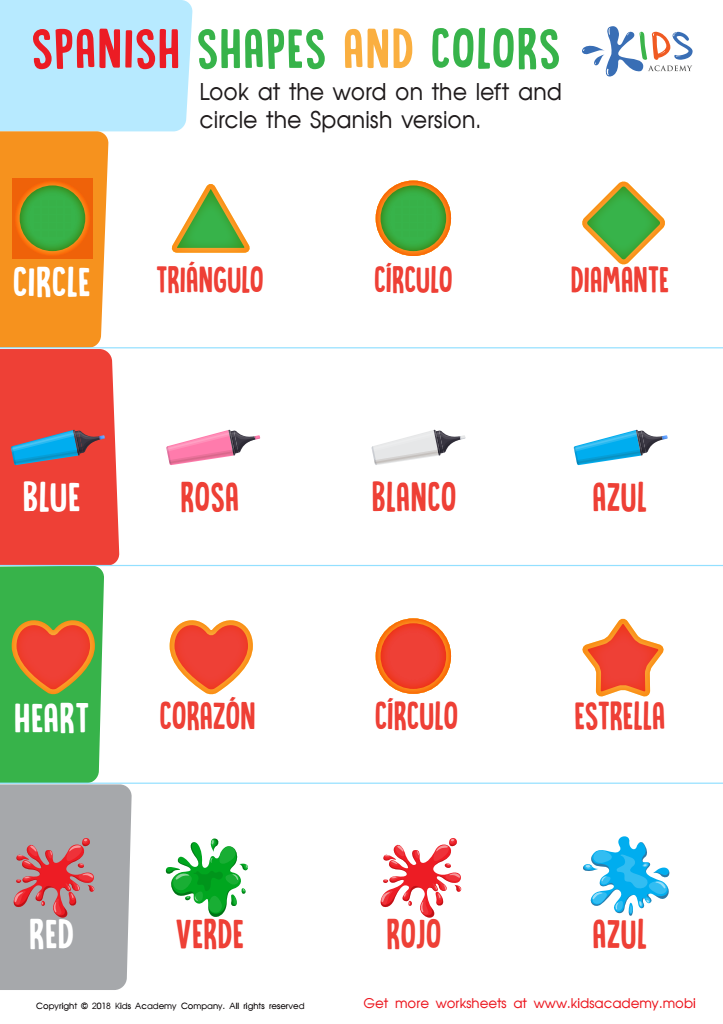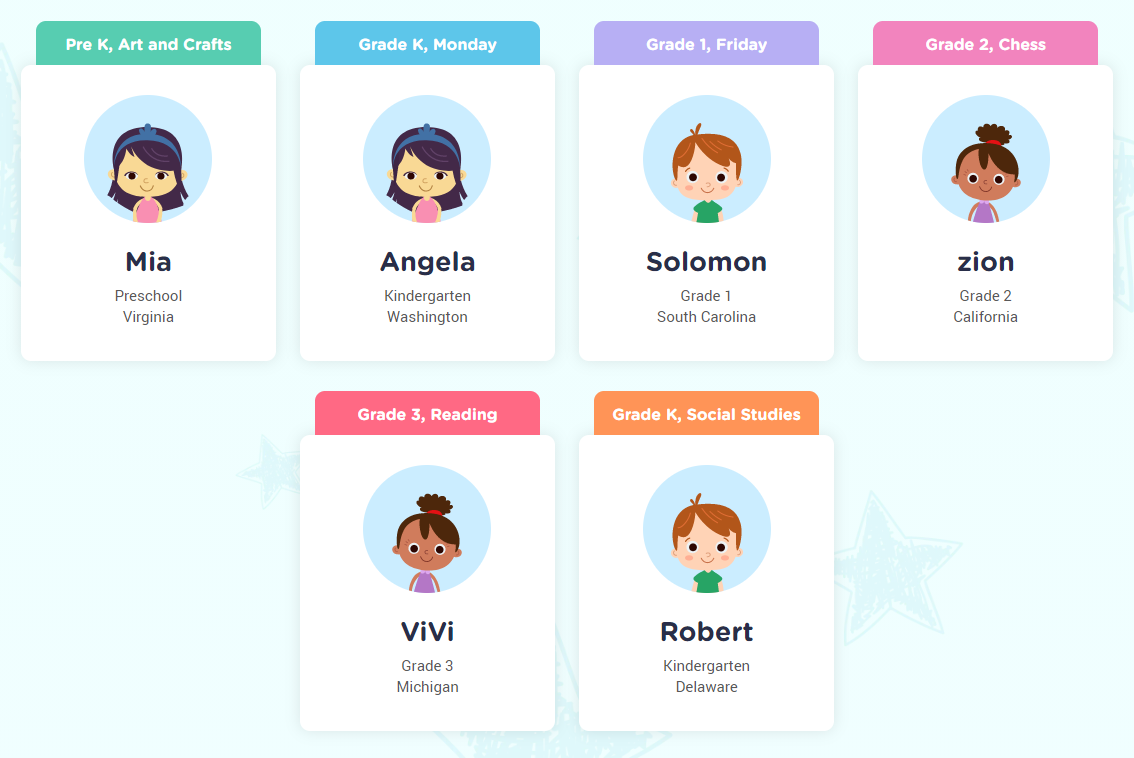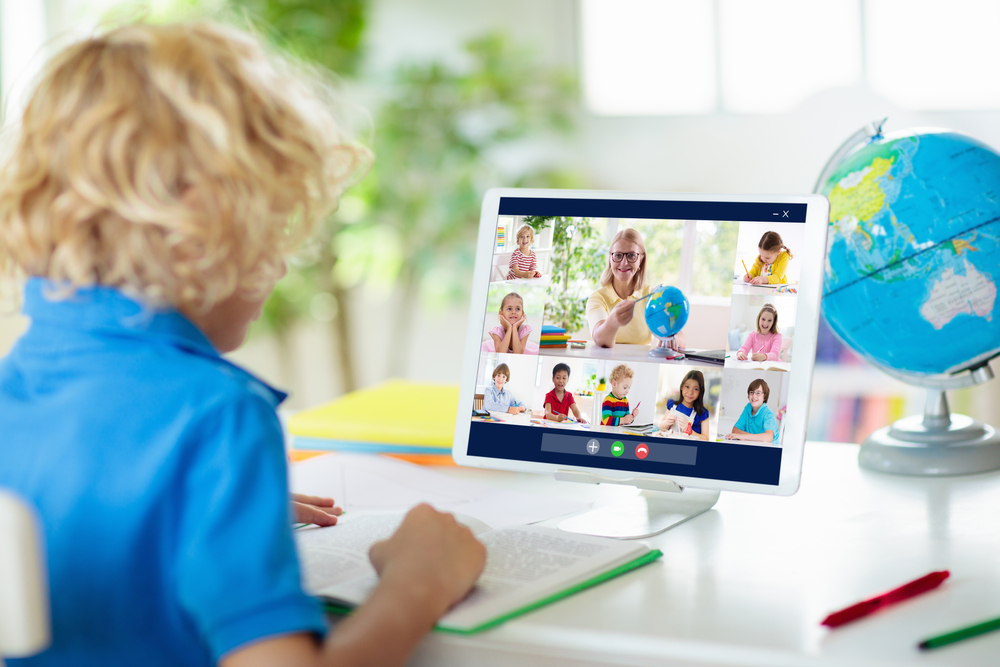Color Identification Normal Social Studies Worksheets for Ages 3-8
3 filtered results
-
From - To
Explore our engaging Color Identification Normal Social Studies Worksheets designed for children aged 3-8. These printable activities aim to enhance your child's understanding of colors while integrating essential social studies concepts. Each worksheet provides fun and interactive exercises, helping young learners identify and associate colors within various social contexts. Ideal for classrooms or at-home learning, our resources foster creativity, critical thinking, and observation skills. Packed with vibrant visuals and thought-provoking questions, these worksheets make learning enjoyable while reinforcing color recognition. Start your child’s colorful journey into the world of social studies today with our educational, easy-to-use worksheets!


Fireman Worksheet


Spanish Shapes and Colors Worksheet


Playground Worksheet
Color identification is a fundamental skill that significantly impacts children's development during the early years, particularly for ages 3-8. Parents and teachers should care because recognizing colors is crucial for cognitive and language development. When children learn to identify colors, they enhance their ability to categorize and differentiate objects, which is a vital cognitive skill. This foundational understanding serves as a building block for more complex concepts in math and science later on.
Additionally, color identification supports social studies by fostering awareness of the world around them. Understanding colors allows children to participate in discussions about their environment, enhancing their observation skills. For instance, identifying colors in community settings, such as traffic lights or maps, helps children comprehend safety rules and spatial awareness.
Moreover, engaging in color activities—like art, games, and storytelling—stimulates creativity and communication, enhancing social interactions. Teachers and parents can utilize color identification to create cooperative learning experiences that promote collaborative skills and inclusivity.
In summary, color identification not only enriches children's cognitive and language skills but also prepares them for social interactions and a greater understanding of their environment, making it an essential focus for early education.

 Assign to My Students
Assign to My Students





















